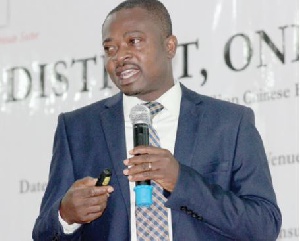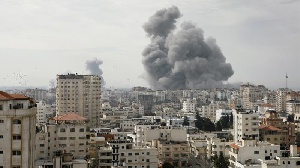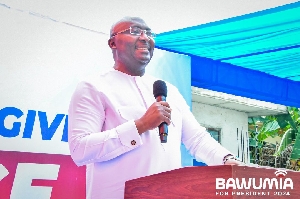Business News of Saturday, 29 September 2018
Source: thebftonline.com
‘We are still paying too much for inefficient energy’ – AGI
Cost of energy remains a significant worry for industry, the Association of Ghana Industries (AGI) has lamented, noting that domestic producers are still saddled with having to pay more relative to their competitors elsewhere.
“Today, industry is not complaining about supply anymore. Since last year the problem has been the cost; the cost of energy has been a big issue, it is expensive if you compare to other countries,” said Seth Twum-Akwaboah, AGI’s Chief Executive Officer, in Accra.
“For industry, energy constitutes a major cost component of the whole cost structure; therefore, you would want to have an efficient energy system – a reliable one wherein there is regular supply of energy so that you can produce at very competitive prices,” he added.
According to the AGI, although there were some reductions in tariffs at the beginning of the year, its analysis shows that the cost of energy is still not only high but also inefficient, which it said makes domestically-produced goods uncompetitive.
“Fortunately, this year we had some reductions – about 25 percent, which was very significant for businesses. But we still think that our energy cost is still high, especially because we are competing with other countries; and when you go those countries their energy cost is much lower, so therefore their production cost becomes lower and their price also becomes lower.
“And when they bring their goods into your market to compete with you, that is where the issue is. So, we need to have energy at competitive prices supplied in an efficient manner so that we can compete,” Mr. Twum-Akwaboah further explained.
The AGI CEO spoke in an interview during the last day of the three-day Ghana Industrial Summit and Exhibition held last week, which was on the theme ‘International partnerships for value-added industrial and local content development’.
The need to expedite other energy options
Ghana’s power generation has shifted from hydro to thermal in the last couple of years. However, it is expected that by 2027 gas production could start dwindling if the country fails to hit new wells with sufficient deposits of gas.
This would mean that getting gas to power the country’s many thermal plants could become an expensive venture, if not prohibitive.
It is in this light that Mr. Twum believes the country must be fast in planning for the future by expediting alternatives.
Following a presentation by Rosatom, a Russian state atomic energy corporation that specialises in nuclear energy, Mr. Twum said the AGI is convinced that nuclear energy could be a viable option for Ghana.
“Our view is that it is an option; let’s explore it – and if we are exploring let’s be fast about it, because we cannot wait any longer.
“We still consider the current energy cost. We know that government has helped with some reductions and we appreciate it, but we would love to see more reductions because we are still comparing our production cost in Ghana with respect to energy in other countries, and we are still not that competitive,” he noted.
According him, nuclear energy is an interesting option to look at, and that this type of energy was not new to Ghana.
“Since Kwame Nkrumah’s time we have had nuclear energy, except that we have not developed it to a very commercial level where it can actually augment the national grid – and that’s where the challenge is. So, if there is a possibility for it to be improved and upgraded to add to our energy stock, why not?” he queried.
He however added that: “What is important now is to look for the kind of technology that is well-tested and proven, and has safety arrangements around it”.













